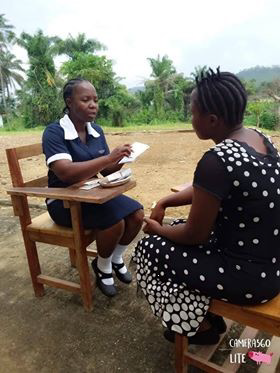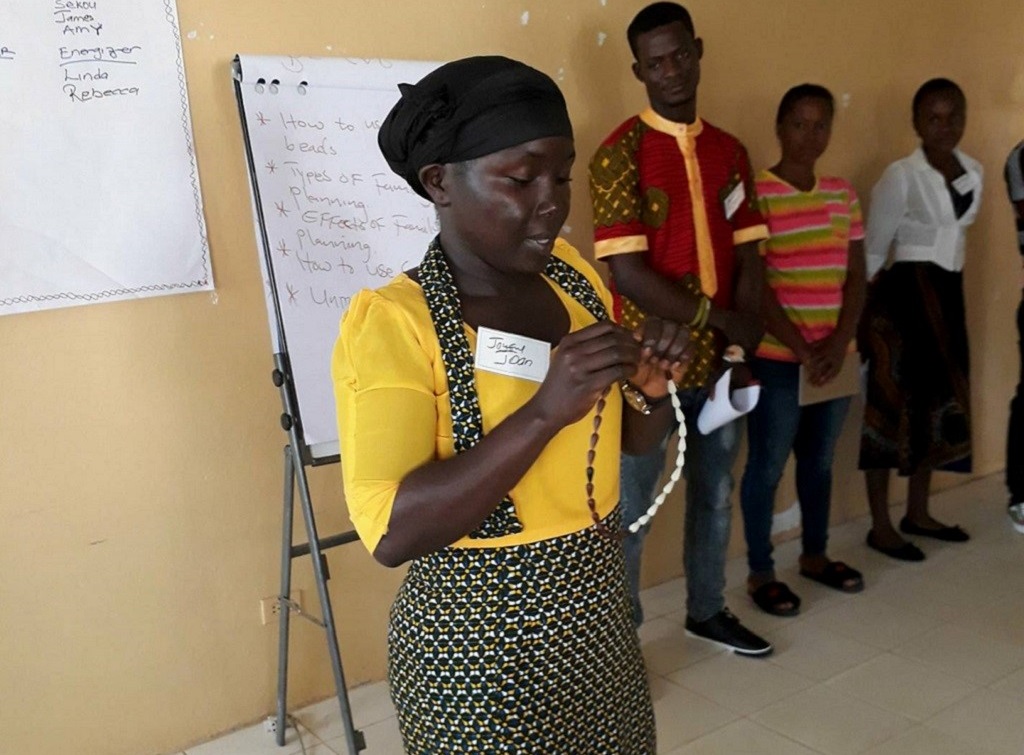Lofa County, Liberia – Becoming pregnant unexpectedly can cause major life disruptions for any woman – and student nurses and midwives are no exception. For female students, an unplanned pregnancy too often also means the end of a promising education.
To protect those who dedicate their careers to Liberians’ health, MCSP is supporting the Ministry of Health to scale up family planning (FP) services with a focus on the country’s budding health professionals. This began with changing the culture of Liberia’s pre-service education institutions (PSEIs).
A 2016 MCSP gender assessment revealed that Liberian PSEIs were not providing access to FP services or commodities. The findings also noted a lack of adequate school support systems for pregnant students and a tendency to ridicule or “gossip” about pregnant students, which adversely impacted their academic performance.
With MCSP support, PSEIs updated their school policies to be more gender-responsive, reflecting a new support for pregnant students and efforts to prevent sexual harassment. These schools now allow pregnant students to take time off for antenatal care and delivery without being penalized, and refer complaints of sexual harassment to school grievance committees.

In addition, MCSP and the Ministry of Health conducted training for 30 students from three PSEIs to become FP “peer providers.” Over three days of presentations and role playing, these students learned how to provide FP counseling and services to their fellow students, while also educating them on sexual harassment awareness. They were also trained to provide support for students who become pregnant while in school, such as ensuring they’re following related school policies once their pregnancy is confirmed, and do not miss doctor appointments.
Each school’s gender focal staff requests refills of commodities from the Ministry of Health, and gives them to the FP peer providers to distribute for free to their fellow students. “Every morning when I pack my books, I have FP pills and condoms in my bag. You can never tell [when] someone might walk to you and ask for a refill,” said one FP peer provider. “You do not want to miss any opportunity.”
Like many Liberian students, those at the Esther Bacon School of Nursing and Midwifery (EBSNM) face challenges obtaining safe and reliable methods to prevent unwanted pregnancy. Long lines at health facilities, for example, are a deterrent for busy students involved in course work or clinical practice.
First-year EBSNM student Linda Kharke trained to be an FP peer provider, and now spends time outside her studies counseling her peers on healthy behaviors and making FP available to them. “I am very grateful for this program, because it is difficult to focus on your studies when female students get pregnant or male student have a girlfriend that is pregnant,” she said.
“Talking about FP and distributing it here on campus have not only built my self-confidence, but have also added to my professional life to come,” said Kharke. “I have extended my services to others in my community and also to family members during vacation.”
In the two months since she began meeting with her fellow students about FP, many have expressed gratitude for the new contraceptive program. “This program is really good for us, because getting refills cost a lot of time,” said a student client. “Now that we have [FP methods] on campus, it is easier for us to get our refill without spending a lot of time waiting in long lines at a busy clinic.”
All six MCSP-supported PSEIs in Liberia are now operating with these updated policies, and hundreds of female students have been positively affected:
- 219 received FP methods counseling;
- 198 were given a modern contraceptive at their request; and
- 150 learned how to better prevent – and report – sexual harassment.
These efforts are continuing thanks to collaboration with the County Health Team, which is helping to train additional peer providers to replace the current cadre as they graduate.

